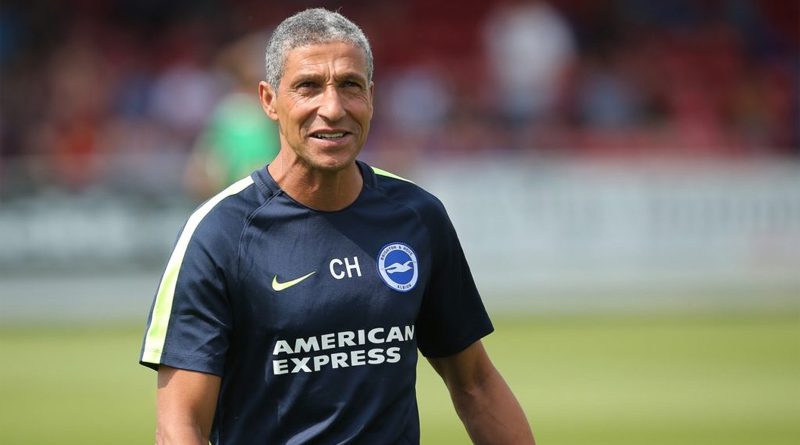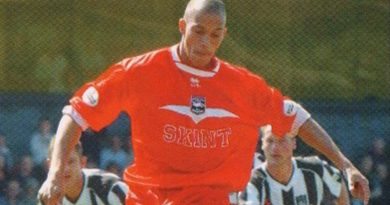The best managers in the history of Brighton & Hove Albion FC
Brighton & Hove Albion FC, commonly known as Brighton FC, has seen various managerial styles and successes throughout its storied history.
As one of the prominent clubs in the English Football League, it has attracted a series of managers who have left a lasting impact on the team and its loyal supporters.
From their humble beginnings to their rise in the Premier League, the club’s journey is deeply tied to the vision, strategies, and leadership provided by their managers.
We will explore some of the best Brighton FC managers who shaped the club’s legacy. Along the way, we will also dive into some aspects of the club’s exciting footballing culture, which you can further explore in forums and transfer discussions across platforms such as brighton fc forum and brighton fc transfer news.
For a fun diversion, if you’re interested in a bit of gambling, you could also check out the best Australia online pokies.
1. Chris Hughton – The Architect of Premier League Stability
One of the most beloved and successful managers in Brighton’s history, Chris Hughton, took charge of the team in 2014 and led them to the Premier League for the first time in 34 years.
Hughton’s leadership was instrumental in transforming Brighton from a mid-table Championship side into a Premier League competitor.
Hughton’s tactical approach was often praised for its discipline and pragmatism. He led the team with a focus on solid defence, structured gameplay, and a strong team ethos.
Under his management, Brighton’s defence became one of the most reliable in the league, allowing them to secure Premier League survival in their first two seasons. This success earned Hughton widespread admiration both within the club and among the supporters.
Although Hughton’s reign ended in 2019 after a few difficult seasons, his impact on Brighton’s progress cannot be understated.
His ability to take the club to the Premier League and maintain top-flight status for several years was a remarkable achievement.
His tenure represents a period of growth and stability in the club’s history, making him one of the best Brighton FC managers.
2. Graham Potter – The Innovator and Visionary
After Chris Hughton’s departure, Graham Potter took the reins in 2019, and his appointment marked the beginning of a new era for Brighton.
Potter, known for his tactical flexibility and innovative approach to football, was tasked with taking the club to the next level.
He brought a fresh style of play to the team, encouraging more possession-based football and fluid attacking movements.
Potter’s success at Brighton lay in his ability to develop young talent and implement a dynamic tactical system that could adapt to different opponents.
Under his management, the team played some of the most exciting football seen at the Amex Stadium. His emphasis on building from the back and his ability to incorporate advanced analytics into team preparation gained him recognition across the football world.
While Potter faced challenges in terms of consistency during his time at Brighton, his tenure saw the club take significant steps forward in terms of tactical sophistication.
After securing Premier League survival in his first two seasons, Potter’s philosophy became a key part of Brighton’s identity.
His move to Chelsea in 2022 was a bittersweet moment for many fans, but his legacy remains significant, as he helped the club become an established Premier League side.
3. Alan Mullery – The Club’s First Top Flight Manager
Before the likes of Hughton and Potter, Alan Mullery had already cemented his place in Brighton’s history. As both a player and a manager, Mullery played an integral role in the club’s rise through the ranks.
His most notable managerial achievement was leading Brighton to promotion to the top division of English football in the 1978-79 season, making him the club’s first-ever top flight manager.
During his time in charge, Mullery helped establish Brighton as a solid, competitive side in the top flight, guiding them to mid-table finishes.
His success was largely built on a disciplined, organised approach and his ability to get the best out of his players.
His iconic leadership during the late ’70s and early ’80s was fundamental to the club’s success, and his presence is still fondly remembered by the supporters.
Mullery’s era in charge, though not as long as some of the other managers on this list, laid the foundation for Brighton’s future successes. The club still celebrates his contributions, and he remains one of the best Brighton FC managers of all time.
4. Dick Knight – Reviving Brighton After the 1990s Struggles
Dick Knight was not a manager, but he had the biggest impact of anyone in Brighton history as chairman; he was the club’s saviour during a period of financial turmoil and relegation battles.
Taking over in the early ’90s, Knight became chairman when the club was struggling in the lower divisions of English football, facing significant financial difficulties and a lack of stability both on and off the pitch.
Knight’s approach helped steer Brighton through some very challenging years, saving the club from relegation to non-league football.
His resilience and focus on bringing in affordable players who could perform at a high level were key factors in stabilising the club during this turbulent period.
Under his chairmanship, Brighton avoided relegation from the Football League and slowly began to rebuild, eventually earning promotion to the Championship.
Although Knight’s time in charge was marked by struggles, his ability to navigate the club through a difficult period cemented his status as one of Brighton FC’s key figures in the modern era.
5. Hyppia, Poyet, and the Other Notable Managers
Other notable managers in the club’s history include Sami Hyypia and Gustavo Poyet. While neither reached the heights of Hughton or Potter, both contributed significantly to the club’s growth during their tenures.
Gustavo Poyet, who managed Brighton from 2009 to 2013, is particularly fondly remembered for taking the club to the Championship play-offs and making them one of the most attractive teams in the division.
Poyet’s possession-based football was a precursor to the modern style that would later be embraced by Potter. His departure in 2013 marked a shift in the club’s managerial approach, but his influence remains a part of Brighton’s footballing culture.




